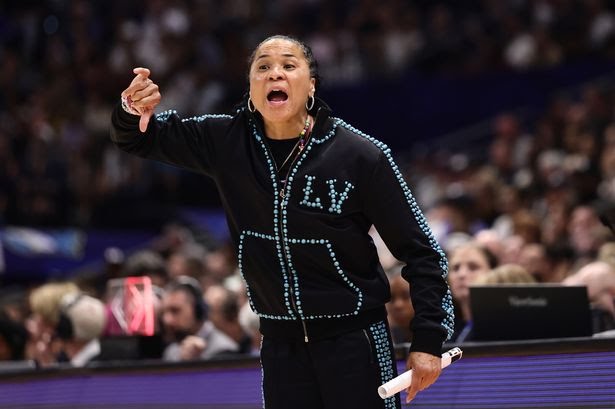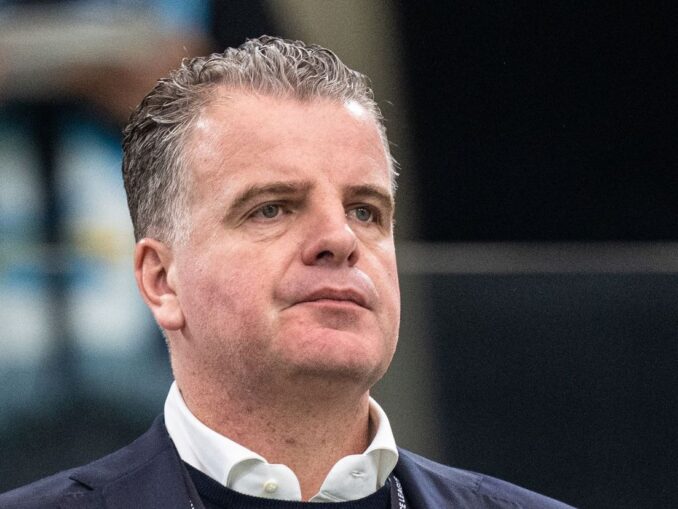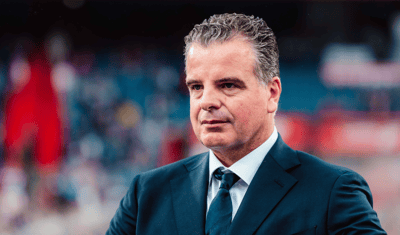
Dawn Staley, the head coach of the South Carolina Gamecocks women’s basketball team, has once again proven she is not afraid to speak up—not just for herself, but for the broader landscape of women’s sports. In a recent interview that has rippled through the sports media world, Staley delivered a pointed and unapologetic message directed at ESPN and other major media platforms: it’s time to pay up.
Fresh off yet another dominant season that culminated in a national championship, Staley used her growing platform to highlight the disparities in coverage, investment, and compensation that still plague women’s basketball. With a national audience increasingly tuning in to the women’s game and viewership numbers shattering records, she sees no reason why the financial rewards should lag behind.
“People want to act like this success is new, but it’s not,” Staley said. “We’ve been building this for years. Now that everyone’s finally paying attention, there needs to be more than just applause. There needs to be investment. There needs to be money on the table.”
Her comments come at a time when women’s college basketball is experiencing unprecedented growth. The 2024 NCAA Women’s Tournament attracted record-breaking viewership, with marquee matchups drawing millions of viewers and outperforming some men’s sporting events in key demographics. Players like Caitlin Clark, Angel Reese, and JuJu Watkins became household names, while coaches like Staley have turned into central figures in the sport’s narrative. But Staley’s frustration is rooted in the belief that media corporations have not moved quickly—or equitably—enough to match this momentum with financial backing.
She specifically addressed ESPN’s role as the primary broadcaster of women’s college basketball and the NCAA Tournament. “They’ve been the platform for this growth, but now it’s time to act like it,” she said. “Don’t just air our games—invest in us. Promote us like you do the men. Pay for the rights like it’s a product you actually believe in.”
The current NCAA broadcast deal, which includes women’s basketball as part of a bundled rights package, has come under intense scrutiny. Critics argue that the women’s tournament has outgrown its place in the bundle and deserves its own standalone media rights contract—one that reflects the true market value of the product. Staley is among those calling for that separation, and she isn’t mincing words about it.
“When you look at what we bring in—the viewers, the fans, the buzz—how is it even a debate?” she said. “The numbers don’t lie. So what are we waiting for?”
Staley’s message isn’t limited to broadcasting rights or her own compensation. She views her advocacy as part of a broader movement to uplift the entire ecosystem of women’s sports—from players and coaches to broadcasters, athletic departments, and youth development programs. She praised the young stars of the game for driving the surge in popularity but warned that momentum without meaningful investment is unsustainable.
“This isn’t just about me getting a bigger check,” she clarified. “It’s about making sure these players see the benefits of what they’re building. It’s about creating an environment where young girls watching on TV can dream of playing on this stage and actually getting rewarded for it.”
Staley, already one of the highest-paid coaches in women’s college basketball, has made it clear that she’s not content with symbolic progress. She wants institutional change—and she’s challenging powerful entities like ESPN to take the lead.
The call for “more money” also intersects with larger discussions about gender equity in sports. For years, women’s athletics have operated on the margins in terms of media coverage and revenue distribution. The recent popularity surge, particularly in women’s college basketball, has forced media executives, advertisers, and NCAA officials to reevaluate the status quo. But for Staley, reevaluation isn’t enough—it’s time for action.
“They always say, ‘Let’s wait and see if this keeps up.’ Well, it’s kept up. The fans are here. The players are stars. The product is elite. What more do you need?” she asked. “If you’re waiting for a tipping point, you missed it. We’re already past it.”
Staley’s comments have sparked wide-ranging conversations across the sports world. Some insiders praised her for speaking truth to power and pushing for long-overdue reform. Others questioned whether the industry is prepared to respond with the urgency and magnitude she’s demanding. But there is little doubt that her words carry weight—and that her voice is one of the most influential in modern sports.
As the NCAA and its media partners look ahead to future broadcast deals, contract negotiations, and strategic investments, the message from Dawn Staley is clear, direct, and uncompromising: women’s basketball isn’t just worthy of more attention—it’s worthy of more money. And those who fail to recognize that, she warns, will be left behind as the sport continues its rapid rise.






